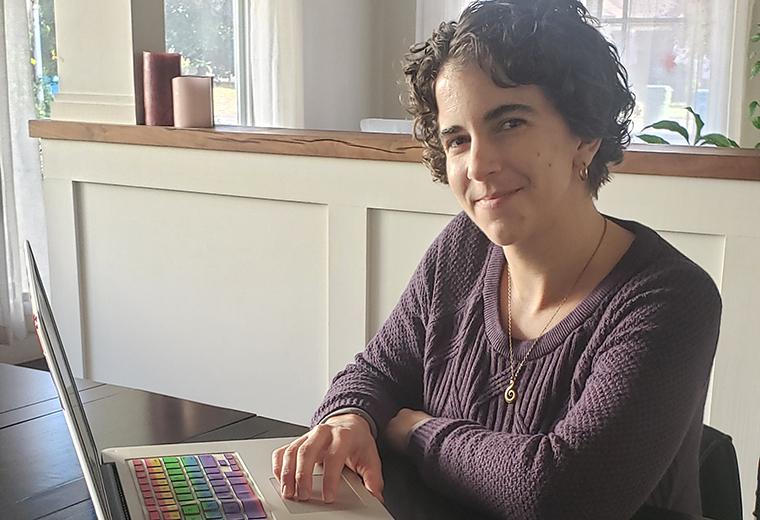
Creating Community, Accountability in Online Classes
How remote teaching has given Molly King new insights that make her teaching better.
This fall, Assistant Professor Molly M. King plunged back into her passion for teaching sociology by re-imagining some of the classes she’d taught online in the spring.
Take Social Problems, a lower-division course King teaches. The class focuses on ways race, class, and gender shape the development of specific social problems and the public policies offered to address them.
To better engage her students, King has asked everyone in the class to create a website focused on a social problem of their choosing and find examples of the role media plays in influencing the perception of that problem.
For example, students might choose the gentrification of San Francisco as their social problem.
“So I ask them to find different media coverage from conservative to progressive to middle of the road, and include that on their site,” King explains.
The website project also teaches students how policymakers and the public play a role in constructing what society comes to view as social problems. In developing their projects, she adds, students also gain valuable job skills, including multimedia design, writing, and website creation.
Re-designing courses from Social Problems, to Qualitative Methods of Research, to Inequality and the American Dream for her online audiences hasn’t been easy.
But remote learning has given King new teaching insights, from making her lectures more concise to adding short videos to class sessions—all of which she plans to incorporate when students return to campus.
“What I’m using now will make my teaching better when I get back in person,” King says, “because it will make my instruction more clear, which is always good for students.”
And King has found new methods of making students more accountable not just to her, but their fellow Broncos, through peer feedback.
Each week after students finish their websites, they’re assigned to review another student’s site. King likes this approach to online teaching for several reasons:
- It creates a sense of community—no matter where they live, students are forced to interact more with others in the class.
- It creates a sense of accountability—students must finish their websites because other students have to review them.
- It gives students an opportunity—not only to learn about another social problem, but to improve their own website.
As important as rejiggering the way King delivers her content is reinforcing the weekly structure of her courses so that students understand exactly what’s expected of them.
“There is almost no way to have too much structure in remote learning, and really, in any learning,” King says.
So she created weekly modules for her fall classes, listing what students need to read, lectures they need to watch, and upcoming due dates for assignments and projects. Her frequent low-stakes quizzes urge them to keep up with the materials.
Included in the structuring, King provides links and suggestions about setting up study spaces and time management tips. She also invites all students to sign up for a study partner.
“It gives them an opportunity to have face-to-face time with another student,” explains King, who randomly selects each pair of students—to their great relief.
“It avoids the awkwardness of the ‘will you be my friend?’ situation,” she says.
Since King’s lectures are asynchronous, or pre-recorded, they ensure her students living around the U.S. and abroad can listen to her presentations in their respective time zones.
She appreciates how that makes the lectures more accessible, while offering students more flexibility in their day—as long as they listen and watch her talks before meeting with each other in online discussion boards to hash out assignments and projects.
“It’s quite the hopping place; they really step up and discuss questions I’ve posted,” says King, who asks students to respond at least twice to eachothers’ posts so it creates a conversation.
“That,” she says, “has definitely been a home run.”